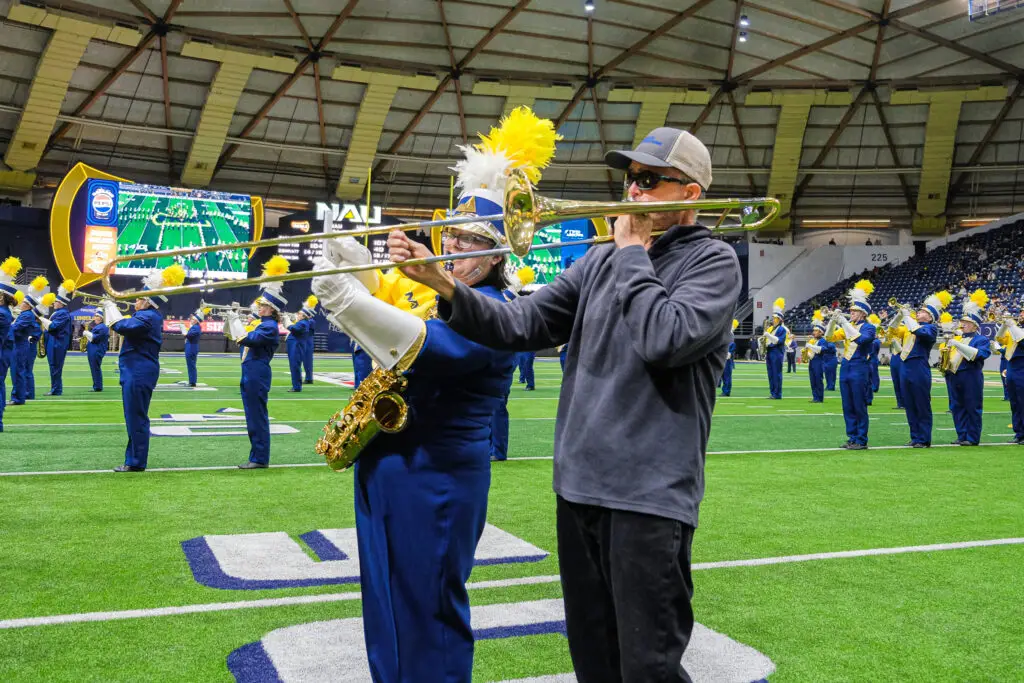Home > Helping People Live Their Best Lives
Helping People Live Their Best Lives
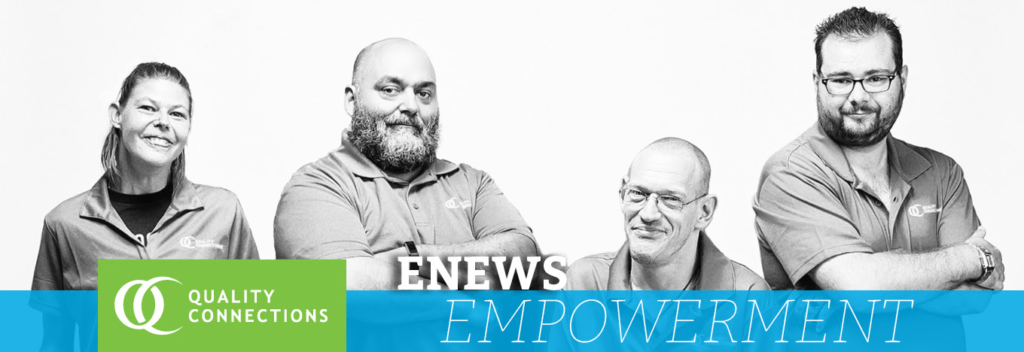
Welcome to QC Enews Empowerment
Normally in this space, we talk about how Quality Connections helps its members with disabilities gain independence through training and in the workplace with programs like QC Learning or our Employment Services division.
For 15 of our members, however, Quality Connections is also the place they call home. Our organization operates six group residences licensed by the state. You can learn more about them from Group Home Services Director Sarah Pelley below.
In this edition of the e-newsletter, we also spotlight one of our interns, Teddy, who worked directly with the group home program this past semester.
We hope you enjoy today’s edition of Enews Empowerment.
– Armando Bernasconi,
Co-Founder and CEO
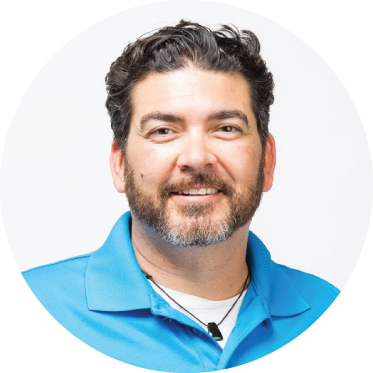
Quality Connections Group Homes: Helping Members 'Live Their Best Lives'
For the 15 members who live in one of Quality Connections’ six licensed group residences in Flagstaff, home isn’t just a place to hang your hat. It’s also a classroom of sorts, where they can refine their daily living skills to increase their personal and social independence.
“We are trying to help folks live their best lives,” said Group Home Services Director Sarah Pelley.
That can mean different things for different residents. One might need help finding a fulfilling hobby. Another might want to learn how to cook or maintain a garden. Others might be learning to take care of their own hygiene or grooming.
Wherever possible, Sarah said, group home staff members try to show members ways they can do things for themselves as opposed to having things done for them.
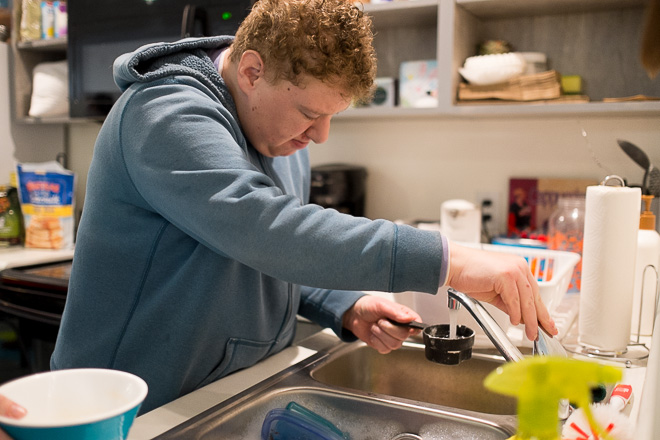
All residents in QC’s group homes have a developmental disability, such as autism, cerebral palsy, epilepsy or intellectual disability. Once the state determines they are eligible for room and board services, potential group homes are identified. And then it’s a little like any roommate situation, Sarah said.
“They get to meet everyone in the house and if they decide it’s where they would like to live – and if the current residents agree it would be a good fit – they can move in,” she said.
Quality Connections group homes are now also a place where university students studying mental health can see their field of study in practice; this past semester, an intern from Northern Arizona University majoring in psychology joined the group home services team.
Teddy Woolsey (see profile below) was tasked with helping develop a plan for one resident who was engaging in challenging behaviors that were interfering with day-to-day life. His role was to watch this resident both in and out of the home setting and report his observations in weekly meetings with Sarah.
“Every Friday, we had a brainstorming session on what Teddy had observed that week,” she said. “It was helpful to have someone with fresh eyes, who was observing this person both in the home and elsewhere and noting what behaviors changed and what stayed the same in different settings. Plus, it was incredible to pick his brain for psychological factors.”
Together, the two developed a plan to help the person manage a challenging behavior that was interfering with their day-to-day life.
“It’s just one more way that we are working to find the best ways to support the individuals we serve in their lives,” Sarah said.
Quality Connections Intern: Teddy Woolsey
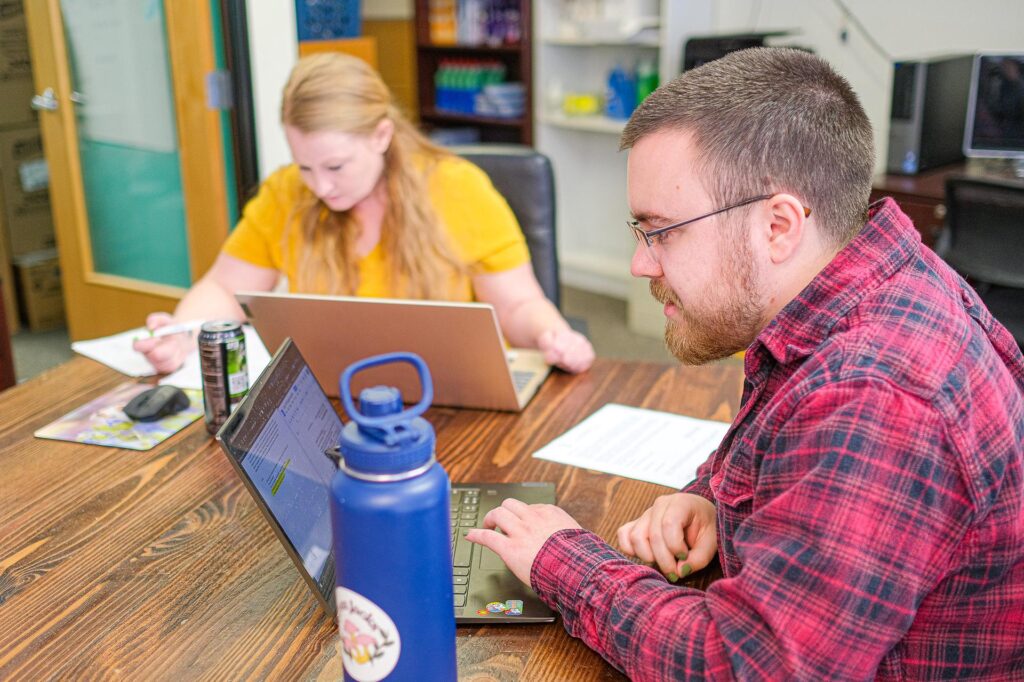
When Teddy Woolsey was looking for his capstone project, part of the requirements to earn his psychology degree from Northern Arizona University, he applied to be an intern at five different sites. Quality Connections was his number one pick.
“It seemed like a good working environment and what they were doing sounded interesting,” he said. “Plus, the way it was described, it was a place were clients were treated as equals; that’s not always the case with mental health programs.”
Teddy was not always interested in psychology. He started out studying media production at a community college in Massachusetts, but his desire to be part of a “helping profession” led him to psychology.
During his internship with Quality Connections, Teddy’s main focus was observing a resident who was having difficulty with their mental health treatment plan and engaging in challenging behaviors. These observations helped Quality Connections group home staff modify how they approached the resident and the situation.
“Mostly, the changes are in how we interact when they are feeling frustrated and need more support,” said Group Home Services Director Sarah Pelley. “Teddy’s observations helped us determine the additional training we might need for this situation.”
Teddy graduated from NAU earlier this month, but don’t expect him to leave the Flagstaff campus any time soon. He’s putting his psychology degree to use in higher education – as an academic advisor at NAU.
We need Quality Connections . . . like you!
You can help individuals with disabilities become independent and productive members of our community. There are many way to be a ‘Quality Connection’ and get involved and all of them are important:
Every purchase from QC Office equals employment and job training opportunities for a person with disabilities.
Enable a person with disabilities to become a productive member of our community.
You’ll be doing good. Plus, you’ll get a dollar-for-dollar credit on your AZ state taxes (up to $800!)

